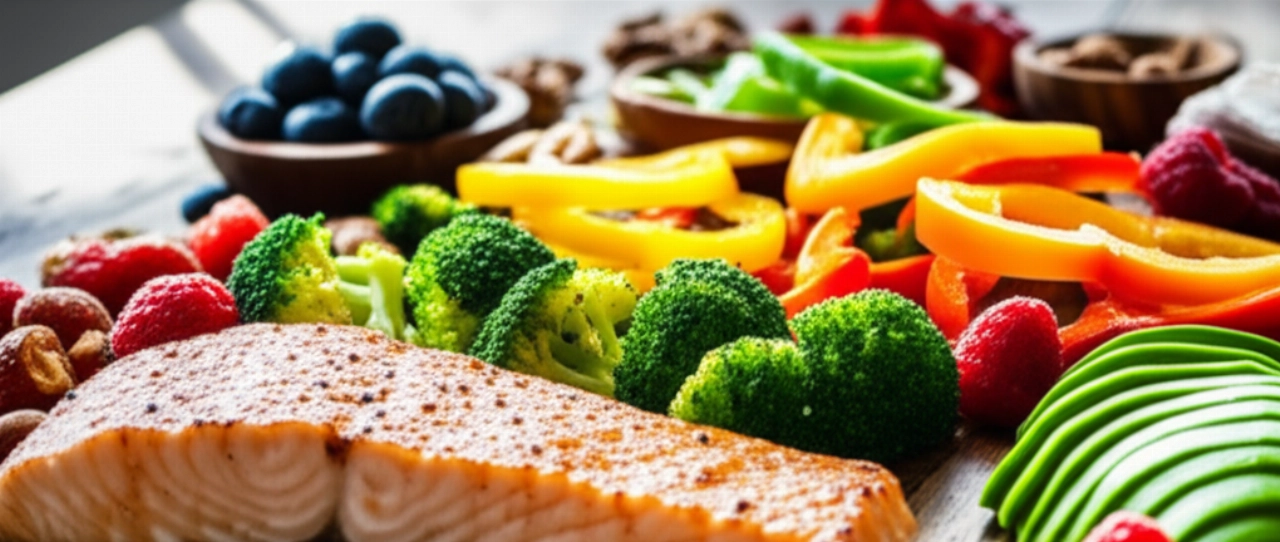Have you ever heard the word "diet" and immediately felt a shiver of terror? An immediate association with deprivation, hunger, sad foods, and a sense of impending failure? You're not alone. Millions of people experience this same anxiety of nutritional confusion, feeling overwhelmed by contradictory advice and unrealistic promises.
You've tried Keto, Paleo, Low-carb, Dukan... and each time the result was the same: a few pounds lost, then regained with interest, leaving you with a bitter taste and the feeling that "it doesn't work for you." The yo-yo effect is a nightmare that steals your hope and confidence in your body. But what if I told you that the problem isn't you, nor your metabolism, but the very definition of "diet" that has been imposed on you?
It's time to clarify. It's time to rediscover the true meaning of this word, its diet etymology, to free yourself from the chains of frustration and fear. This page is your map for a weight loss journey that isn't a punishment, but a rediscovery of the pleasure of eating well, feeling energetic, and loving your body. Get ready to transform your relationship with food forever.

Diet: The Etymology That Reveals the Secret to Your Lasting Well-being
What if I told you that the word "diet" doesn't mean "restriction," but "way of life," "lifestyle"? It seems incredible, right? Yet, that's exactly it. The diet etymology takes us back to ancient Greece, where the term "dìaita" (δίαιτα) indicated a "way of life", a "regimen of life" that included not only nutrition, but also physical exercise, rest, and daily habits. It was a holistic concept, aimed at maintaining health and balance.
This is the first, fundamental truth that frees you: diet is not a period of suffering you can't wait to escape, but a continuous journey of conscious choices that nourish your body and mind. When you understand this, the fear of hunger and deprivation begins to dissolve. It's no longer about "what I can't eat," but "how I can best nourish my body to achieve my wellness goals and lose weight sustainably."
Your body doesn't need to be punished, but understood. It needs a balance of macronutrients (proteins, carbohydrates, fats) and micronutrients (vitamins, minerals) that make it function optimally, activating your metabolism and giving you the energy you deserve. This is the true meaning of a modern "diaita": an approach that allows you to reach your ideal weight feeling vital, not depleted.

The "Crash Diet" Trap: Why the True Meaning of Diet Saves You from the Yo-Yo Effect
How many times have you started a "diet" with great enthusiasm, only to find yourself after a few weeks struggling with hunger, fatigue, and an irresistible urge to "cheat"? This is the direct result of a distorted approach to the concept of diet. Do-it-yourself diets, "magic pills," or advice read on forums promise quick results, but completely ignore the complexity of your body and your psychology.
The problem is that these "quick fixes" create an excessive and unbalanced caloric deficit, causing your body to perceive a threat. The result? Your metabolism slows down, your body clings to fat reserves, and as soon as you return to your previous habits, you regain all the lost weight, often with interest. This is the infamous yo-yo effect, one of the main causes of frustration and scale terror.
A true "regimen of life" (our "diaita") doesn't put you on a diet, but teaches you how to eat. It frees you from dependence on ultra-processed foods and shows you how healthy food can be incredibly tasty and satisfying. It's not about eliminating entire food categories, but about learning to choose, combine, and enjoy every meal. This is the ultimate antidote to failed diets: an approach that doesn't make you feel deprived, but empowered.

Building Your "Diaita": The Pillars of Nutrition That Nourish Body and Mind
Now that we've rediscovered the diet etymology, how does this translate into practice? How can you build your personal "diaita" that leads to lasting weight loss, without sacrificing taste or your social life? Here are the fundamental pillars:
- Listen to Your Body, Not Just Calories: Of course, caloric deficit is important for weight loss, but it's not the only factor. Learn to recognize hunger and satiety signals. Eat slowly, savor every bite. This will help you naturally control portions and improve digestion.
- Macronutrient Balance: Every meal should be balanced with lean proteins, complex carbohydrates (low glycemic index), and healthy fats. This will give you constant energy, help you feel full longer, and keep your blood sugar levels stable.
- Essential Hydration: We often confuse thirst with hunger. Drinking enough water is crucial for metabolism, digestion, and feeling energetic.
- Pleasure and Variety: Your "diaita" must be tasty and varied. Experiment with new recipes, discover unexpected flavors. Food is also about pleasure and conviviality. You don't have to give up everything, but learn to make better choices.
- Smart Planning: Lack of time and motivation are real obstacles. Dedicate some time to weekly meal planning and basic preparation. This will save you from stress and impulsive food choices.
These principles are not just "rules," but tools to regain control of your well-being. They allow you to overcome the annoyance of not being able to reconcile healthy cooking with the hectic pace of daily life, transforming "diet" into a pleasant and sustainable habit.
From "Diet" to "Tailored Journey": Dietasnella.it's Philosophy for Your Success
Understanding diet etymology is the first step. The second is to apply this knowledge in a practical and personalized journey. And that's where Dietasnella.it comes in.
We don't offer you a pre-packaged "diet," the same for everyone. We offer you a tailored journey, based on science and a deep understanding of your needs, tastes, and lifestyle. We know that every person is unique, with a different metabolism, different habits, and specific goals. For this reason, our philosophy is based on creating a meal plan that is:
- Personalized: Not a list of forbidden foods, but a menu that respects your preferences, intolerances, and schedule.
- Sustainable: Designed to be maintained over time, without unsustainable sacrifices or constant hunger pangs.
- Educational: We teach you the principles of healthy eating, so you can make conscious choices in the future too.
- Taste-Centric: We believe that healthy food can and should be delicious. Our recipes are designed to make you love every meal.
- Supported: We don't leave you alone. We offer you the support and guidance of experts who will accompany you step by step.
The difference between a "diet" as you understood it before and our "tailored journey" is abysmal. With Dietasnella.it, you will no longer feel the terror of the scale, but the satisfaction of seeing real and lasting results, the fruit of an approach that respects your body and mind. It's time to stop struggling and start living well.
Frequently Asked Questions about Diet and Etymology
Does Diet Always Mean Deprivation?
Absolutely not! As we've seen from the diet etymology (from Greek "diaita," lifestyle), the original meaning is much broader and more positive. It indicates a balanced approach to well-being that includes nutrition, physical activity, and healthy habits. The perception of "deprivation" is a modern and often distorted interpretation, linked to extreme and unsustainable diets.
How Can I Start Changing My Approach to Diet?
The first step is to change your mindset: stop seeing diet as a temporary punishment. Start focusing on small, sustainable changes, such as increasing vegetable intake, drinking more water, and reducing added sugars. A personalized plan, like those offered by Dietasnella.it, can guide you through this process in a structured and stress-free way.
Is It Possible to Lose Weight Without Feeling Hungry?
Yes, it's absolutely possible! Excessive hunger is often a sign of an unbalanced or overly restrictive meal plan. An approach based on macronutrient balance, fiber intake, and choosing satiating foods allows you to lose weight feeling satisfied and energetic, not hungry.
How Long Does It Take to See Results with a Sustainable Approach?
Results with a sustainable approach are gradual but lasting. There are no "quick fixes" that work in the long term. Already in the first few weeks, you may notice improvements in energy, digestion, and reduced bloating. Healthy weight loss is around 0.5-1 kg per week. The key is consistency and patience, supported by a well-structured plan.
Diet Etymology: What Exactly Does 'Diaita' Mean?
The ancient Greek term "diaita" (δίαιτα) refers to a "way of life," a "regimen of life," or "lifestyle." It was not limited to nutrition, but encompassed the entirety of a person's daily habits, including physical activity, rest, and hygienic practices, all aimed at promoting overall health and balance.
Your Journey Towards Lasting Well-being Starts Here
You've journeyed from confusion to clarity, discovering that diet etymology hides a powerful and liberating meaning. It's not about deprivation, but about a "way of life" that leads you to well-being. Perhaps you think: "It's too difficult for me," "I don't have time for it," "What if I fail again?" We understand these hesitations, but the truth is, you don't have to do it all alone.
Stop feeling frustrated and confused. Your body deserves a clear path that leads to real and lasting results. The first step isn't a restrictive diet, but understanding your needs to create a tailored plan for you. It's free, no obligation, and will give you the map to reach your goal. Click here, tell us about yourself, and discover how you can finally reach your ideal weight feeling great. Start transforming your relationship with food now.
You might also be interested in:





